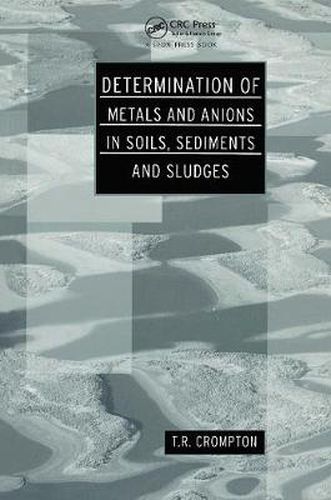Readings Newsletter
Become a Readings Member to make your shopping experience even easier.
Sign in or sign up for free!
You’re not far away from qualifying for FREE standard shipping within Australia
You’ve qualified for FREE standard shipping within Australia
The cart is loading…






Determination of Metals and Anions in Soils, Sediments and Sludges is the first volume to comprehensively discuss the range of methods available for the analysis of metal and anions in soils, river and marine sediments and industrial sludges. A special feature of this volume is its coverage of solid sewage, which is increasingly being applied to land as fertilizer. The reader is presented with details of the methods of analysis available, their applicability in certain environments, advantages and disadvantages of one method as against another, likely interference, the sensitivity of methods and detection limits. As anthropogenic pollution steadily increases, the sediments and sludges can have profound effects on the ecosystem, concentrating steadily in the food chain through invertebrates, fish, crops and livestock and, ultimately, humans. An essential reference for chemists and toxicologists involved in water resource management, agrochemistry, fisheries and public health.
$9.00 standard shipping within Australia
FREE standard shipping within Australia for orders over $100.00
Express & International shipping calculated at checkout
Determination of Metals and Anions in Soils, Sediments and Sludges is the first volume to comprehensively discuss the range of methods available for the analysis of metal and anions in soils, river and marine sediments and industrial sludges. A special feature of this volume is its coverage of solid sewage, which is increasingly being applied to land as fertilizer. The reader is presented with details of the methods of analysis available, their applicability in certain environments, advantages and disadvantages of one method as against another, likely interference, the sensitivity of methods and detection limits. As anthropogenic pollution steadily increases, the sediments and sludges can have profound effects on the ecosystem, concentrating steadily in the food chain through invertebrates, fish, crops and livestock and, ultimately, humans. An essential reference for chemists and toxicologists involved in water resource management, agrochemistry, fisheries and public health.